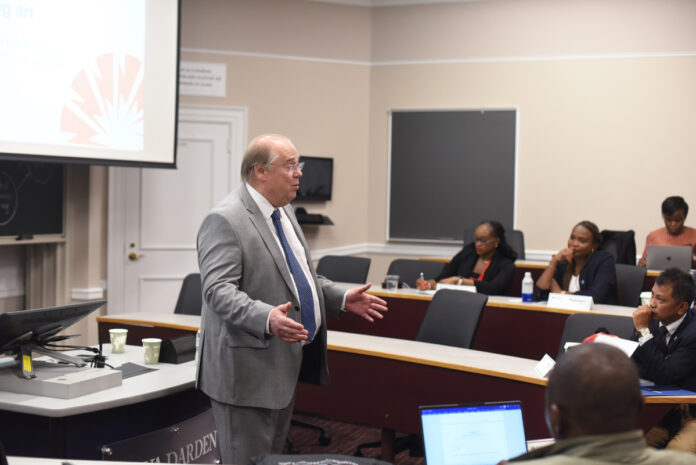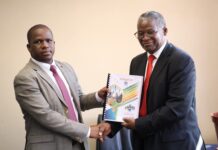Fairplay Movement Founder Francois Baird says the country played smart by making a deal with the United States when they considered some of its convicted criminals.
This was shared by Baird on Saturday during an interview with Newzroom Afrika after the US President Donald Trump issued an Executive Order on Thursday, imposing higher import tariffs on dozens of countries, set to take effect this week, as part of his push to reshape global trade in favour of the United States.
FairPlay Movement is a South African organisation that fights against trade dumping and job losses. They expose and highlight the damage that dumping does; its impact on jobs; livelihoods and communities.
Eswatini is amongst six other African countries that had lower trade tariffs, including Gabon, Guinea-Bissau, Liberia, Mauritius and Senegal.
Trump lifted the trade tariffs on goods entering the US from Eswatini, while South Africa was left with a 30% tariff on exports entering the US.
Other African countries received a 15% tariff while South Africa and Libya had steep tarrifs of 30%, with Tunisia on 25%.
When speaking to the news publication, Baird said South African farmers and workers were now paying the penalty of their government’s failure to align with what they believed was the biggest economy in the world over the past 15 years.
He said Eswatini played smart by making a deal that was not only about trade when taking in the US deportees.
“This shows that some governments have not been asleep, but instead were being smart about their negotiations. What is ahead for us as South Africans is a lot of pain, unless our country changes its political posture and alignment, this is still going to get worse,” he said.
He added that there was still a 10% BRICS penalty that might be coming down the track. He says this was a time to panic for South Africans and avoid the Christmas rush.
| Eswatini Observer WhatsApp Channel
Baird said the South African government should take the poultry industry, in particular, into its confidence and work with them, instead of trying to force the industry to do more because there was no more to give.
He said this industry had been sacrificed all the time in negotiations, highlighting that they were concerned that the South African government and the Department of Trade and Industry have not been speaking to the poultry industry.
“At least 66% of all meat produced in South Africa is poultry. The South African government should assist this industry for now because they are the ones most affected,” he said.
Acting Government Spokesperson Thabile Mdluli said Baird’s statement echoed what government had been saying since the matter of the deportees was brought to the fore.
She said government always prioritised the interests of Emaswati in every diplomatic engagement.
Mdluli further urged Emaswati to trust their leaders and believe that every decision taken was done with meticulous care and consideration.
“We believe that the nation will soon reap the benefits of this agreement, if not through tariffs then it will be other equally important interventions,” she said.
Meanwhile, Minister of Commerce, Industry and Trade Manqoba Khumalo, in a statement issued on Saturday clarified that the 10% tariff remained unchanged for Eswatini.
He said, as stated before, the country had initiated diplomatic consultations through its embassy in Washington DC, to explore further opportunities to strengthen its trade relations.
Khumalo then encouraged all stakeholders, particularly the private sector and exporters, to remain informed and engaged as government navigates this evolving trade environment.
“These engagements will continue through the established channels as the US government considers the offer Eswatini has submitted. Eswatini values its longstanding trade and economic relationship with the United States and remains committed to open, rule-based and mutually beneficial trade,” he said.
He added that the ministry had taken note of the Executive Order issued on 31 July by President Trump, under the authority of the International Emergency Economic Powers Act and other US statutes.
The Executive Order modified the tariff measures introduced in April under Executive Order 14257 and represented a continuation of the United States’ D reciprocal tariff policy.
“As our exporters are aware, the AGOA programme expires at the end of September. We will be guided by the USA government whether the programme will ultimately be extended or not, but we have made a case for its implementation extension,” he said.
Eswatini Observer Press Reader | View Here








